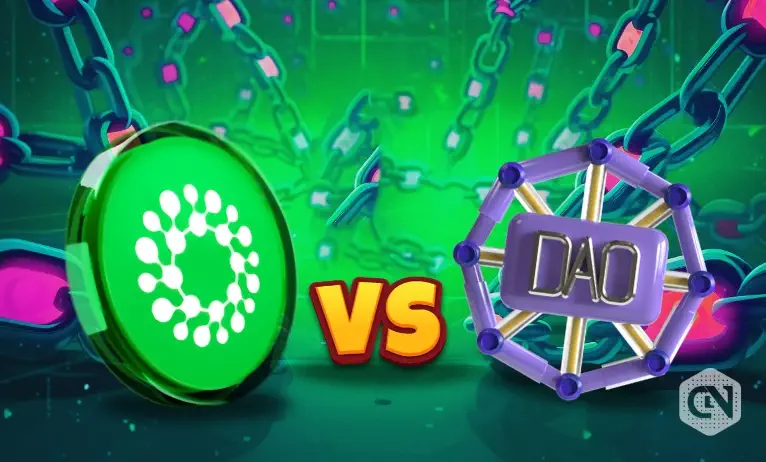Ozone Chain (OZO) follows a voting system called “Governance by Voting” when making decisions to communicate and coordinate with the network users. In this model, token holders are permitted to propose and vote on changes that should be made in the network, with their votes typically weighted by how many tokens they have. With this model, some financial stake is required, which allows for greater inclusivity but also creates a structure in which the individuals who can afford to hold more of an asset at any given time have more say, thus theoretically centralizing power in the few more oversized holders.
DAOs, on the other hand, follow a different approach. They are not controlled by any central authority and are fully programmed via smart contracts for decision-making. This structure guarantees the highest level of transparency and community engagement without external manipulation. However, questions arise in the face of historical challenges, such as voter apathy and potential control by a minority that still exists, relating to whether decentralization on this scale can be effectively implemented.
Ozone Chain (OZO) offers Quantum Resistance Technology (QRT) that Ozone provides better security against advanced threats such as quantum computing and DAOs on their lack of the capability to achieve this. Ozone Chain (OZO) maintains a balance between transaction and governance integrity by tying its secure, quantum-resistant framework with governance by voting.
At the same time, DAO systems vary from token-based voting to quadratic and liquid democracy—which is more AGILE, oddly enough, but likely less secure against quantum threats. Governance and security are structured using the Ozone Chain (OZO). This platform can better serve applications that require sturdy security or decision-making.
A thorough understanding of how DAOs differ from the OZO chain is essential when deciding which one better suits a particular use case. Ultimately, a blockchain, Ozone Chain (OZO), uses quantum-resistant technologies that remain secure against future threats and is an ideal platform for developers. It has a firm structure to develop and execute applications.
DAOs are not blockchains but instead utilize the services and functionalities provided by blockchain platforms like Ozone Chain (OZO). Their operations and governance are automated by smart contracts, with the underlying blockchain providing security and decentralization. As such, Ozone Chain (OZO) focuses more on creating a secure and easy-to-use footer that everyone can trust, while DAOs offer decentralized governance frameworks suitable for community-driven operations.
With the evolution of blockchain technology, it is imperative that we understand and select among various models developed around governance, such as Ozone Chain (OZO) or DAOs. They provide one way of hinting at how decentralized technologies can become part and parcel of mainstream finance—both from broader society and through a unity-based context technique required to earn some agreement (sometimes essential) to the actual mechanics inside the governance routine.
Buy OZO now and secure your stake in the quantum-resistant future.


